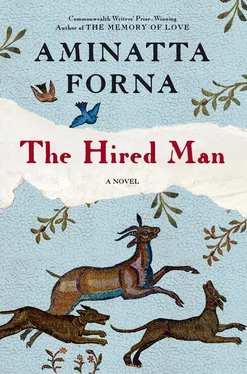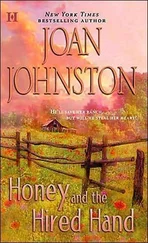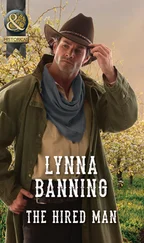Vinka Pavić is an angry woman and her anger shows in the set of her teeth, the lines around her mouth into which her lipstick bleeds, the way she folds her arms. When she laughs it is to mock and in this she finds an ally in her son. But Anka, Anka was born with joy in her soul, to which they feel she has no right. Behind it all, as with so many things in life and in death, lies envy. In the end it gets the better of them.
Vinka in one of her rages: a letter sent to her place of work, a letter about me and Anka. Anka pleads, ‘But nobody knows.’
Vinka twists her mouth and holds the letter in front of Anka’s face. ‘Somebody knows! Somebody knows! Everybody knows!’ With her free hand she reaches out, but instead of slapping Anka she scratches, scoring the skin of Anka’s neck. And Krešimir, watching silently from the top of the stairs, turns away.
My mother works at the fertiliser factory, not in the management offices but on the shop floor. Vinka rarely speaks to her, but on this day, when my mother’s shift is over, there is Vinka waiting. Vinka has brought Krešimir. My mother doesn’t know what it can be about, but dares not ask and walks them home to see my father. All the way her varicose veins hurt. In the hills high above the house Anka shows me the scratches on her neck.
My father is not angry, still something must be done. When the talking is over he says, ‘Go to the coast. Find work until the end of the summer.’ He even offers to call his estranged brother. Danica has married Luka and moved out. Daniela’s tears leave dark streaks of mascara down her cheeks. My mother’s nature is to accept what she sees in front of her. Some things have consequences. Danica and Luka come over. Luka agrees with my father. ‘The girl is underage. If they want they can make it bad for you.’ The living on the coast is good, Luka knows many things. ‘Forget her, for two years at least, my friend.’ He winks. ‘Come back and marry her if you still care.’
Next to old Pavić is a place for Vinka, and next to it is Krešimir’s grave. The date of his birth is carved into the granite. September 1961 to 20–. Two blank places waiting to announce the year of his death. The graves are in one of the better parts of the graveyard, though perhaps not the best. Still, a long way from the eastern wall where the explosion took place three years back. The police said it was an abandoned grenade and dropped the case. The blast wrecked a number of headstones, but they were only headstones belonging to the dead of those families who’d already left Gost.
Conor stepped out of the house. He was carrying a holdall, which he placed on the back seat of his rental car. This was now Monday, I’d been at work no more than two hours. He came and stood at the bottom of the ladder. ‘Good job you’re doing, Duro. Can’t thank you enough,’ he said and extended his hand. I climbed down the ladder, laid the saw I was using on the windowsill and we shook hands. Conor shaded his eyes as he looked up at the dead tree. ‘Good luck with that. I wish I could stay to help. Maybe Matthew could give you a hand. You could ask him. Never know. You did teach him to shoot, after all.’
I nodded.
Conor half shook his head and seemed about to say something more, changed his mind and went inside. I climbed back up the ladder and continued what I’d been doing: removing the dead tree’s limbs, ready to bring the whole lot down. Ten minutes later the family came out. Grace and Laura kissed Conor, Matthew shook his hand and muttered goodbye. As soon as the car moved off Matthew turned away and went back inside. Laura and Grace stood waving until the car was gone from view. That was the first and last I saw of Conor the whole summer.
An hour later when I went to the field at the back of the house, easier to piss there than in the family’s bathroom upstairs, I found Laura sitting against the walnut tree; she was smoking a cigarette, jabbing with the forefinger of her other hand at the root of the tree. She started when she saw me and then said, ‘Oh Duro, thank God it’s only you. I thought it might be one of the kids.’
I said nothing. Laura stood up, took a last puff of the cigarette, threw it to the ground and dusted off her hands. I walked over and ground it out. I glanced at the place on the tree she’d been jabbing with her finger; there was a line of ants coming from the loose earth around the base up the trunk of the tree, now a line of dead ants, their living companions racing around them in panic. I said, ‘I didn’t know you smoked.’
‘I don’t. Well obviously I do. Occasionally. It’s no big deal. I just don’t need Grace on my back about it. Frankly I’m a bit out of sorts right now.’
‘Out of sorts?’
‘You know: annoyed. Well no,’ and she continued, ‘more like — disappointed, fed up even. I just didn’t imagine when we bought this house that it would be me and the kids out here on our own.’
‘Your husband had to go back for work?’
‘I just wanted a family holiday for once. So Conor and Matt might have a chance to work things through. I thought if they had some time together. oh well,’ she said. ‘Fuck that.’
I didn’t reply, I felt sad for Laura, but then I thought I understood why Conor found so much in his work to occupy him. Laura allowed him a place by her side as her husband, but not as father to her children. Matthew was a teenage boy and needed a firm hand. What was Conor to do? But I didn’t say any of that, instead I said, ‘Let me show you something.’ I stepped forward, opened the double doors to the outbuilding and pushed them both back, positioning a couple of bricks to stop them closing again. Light filled the space. I went forward and lifted the cover of the Fićo. I’d managed to put in a good few hours here and there and so far I was pleased with my progress. The car’s mechanics were simple and because it had been stored inside had survived the sixteen years remarkably. I’d given the bodywork a polish even though I still had plenty of work to do on the engine. I did it because I liked to see the car looking as it once had and because I knew Laura would be impressed. I’ve worked on enough houses to know that it’s the first coat of paint or plaster that makes the difference.
I said, ‘Not ready yet, but soon. First I must change the cables and hoses and then we test it. Maybe you can drive.’
Laura turned to me and smiled.
Kos lies on the floor by a cold stove. Her eyes are open, though she is fast asleep. Eighteen years ago she was a pup of five months tied to a tree, waiting for her owner’s return. That was how she came to me. I’d already brought her home when I realised why someone had left her to die: she was blind. They thought a blind dog would never be any good for hunting, but they were wrong. At the top of her game Kos was the best tracker I ever knew. Now take Zeka, her son, he’s a great hunting companion but differently so. He loves the chase and races through the woods with his nose high. He’s best at the start, at locating the herd. But Kos could track a single animal, hunt it down all night, long after Zeka grew bored with the whole game. It’s the difference between the sexes, some say: the sensory system of the male designed to catch the scent of a bitch in the wind, and the female who can follow the trail of a lost puppy. And Kos’s useless eyes made her sense of smell doubly good.
This is as I told Grace. She’d seen us coming up the road for our evening exercise and walked with us part of the way. A farmer’s trailer had been left at the side of the lane; I called a warning to Kos who slowed down, swinging her head from left to right in the way she did, until she located the obstacle. When I told her, Grace couldn’t believe Kos was blind, so I called Kos to me, held up my index finger and moved it in front of her eyes. Kos never blinked and nor did her eyes move.
Читать дальше












